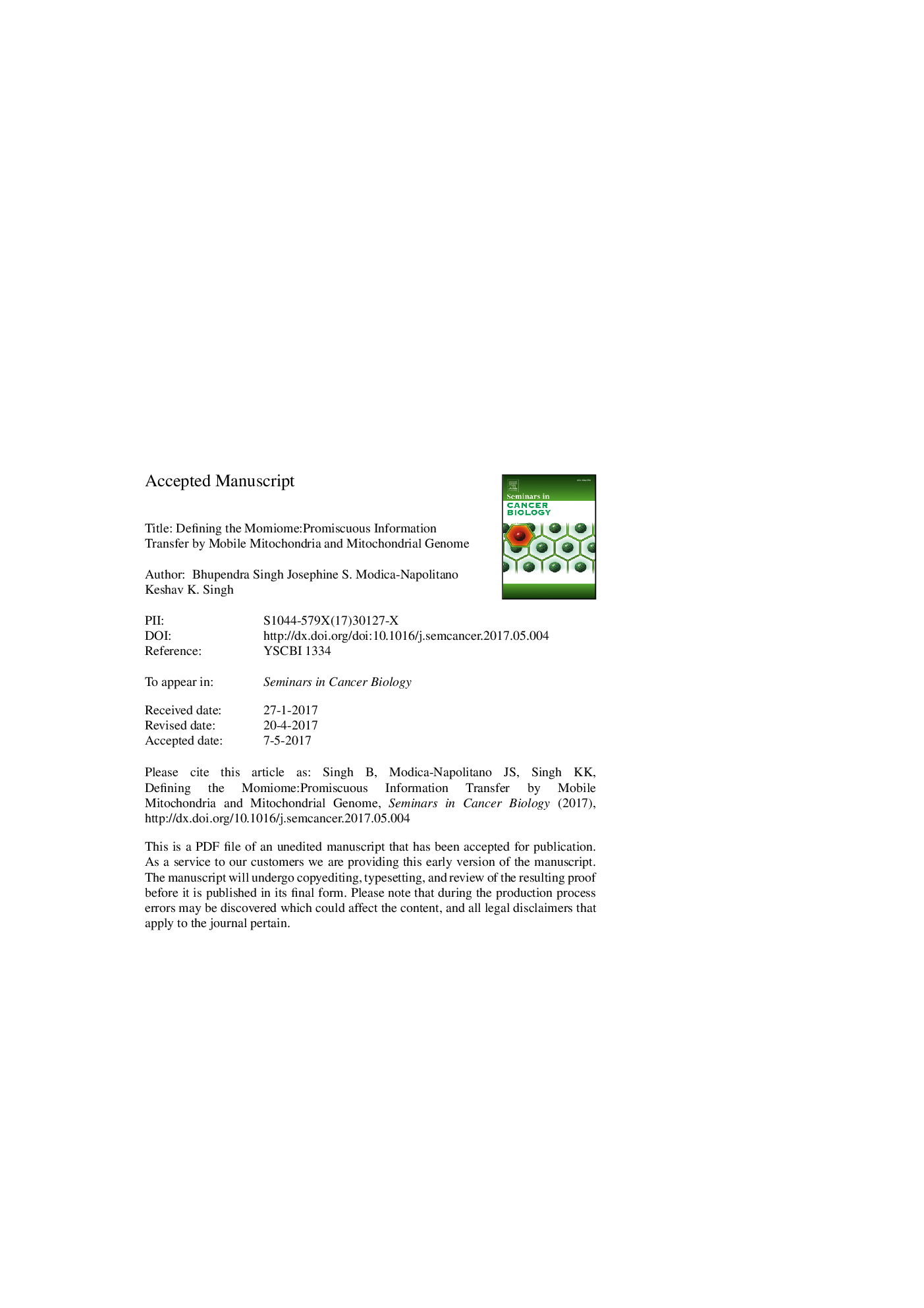| Article ID | Journal | Published Year | Pages | File Type |
|---|---|---|---|---|
| 8361812 | Seminars in Cancer Biology | 2017 | 47 Pages |
Abstract
Mitochondria are complex intracellular organelles that have long been identified as the powerhouses of eukaryotic cells because of the central role they play in oxidative metabolism. A resurgence of interest in the study of mitochondria during the past decade has revealed that mitochondria also play key roles in cell signaling, proliferation, cell metabolism and cell death, and that genetic and/or metabolic alterations in mitochondria contribute to a number of diseases, including cancer. Mitochondria have been identified as signaling organelles, capable of mediating bidirectional intracellular information transfer: anterograde (from nucleus to mitochondria) and retrograde (from mitochondria to nucleus). More recently, evidence is now building that the role of mitochondria extends to intercellular communication as well, and that the mitochondrial genome (mtDNA) and even whole mitochondria are indeed mobile and can mediate information transfer between cells. We define this promiscuous information transfer function of mitochondria and mtDNA as “momiome” to include all mobile functions of mitochondria and the mitochondrial genome. Herein, we review the “momiome” and explore its role in cancer development, progression, and treatment.
Keywords
Related Topics
Life Sciences
Biochemistry, Genetics and Molecular Biology
Biochemistry
Authors
Bhupendra Singh, Josephine S. Modica-Napolitano, Keshav K. Singh,
